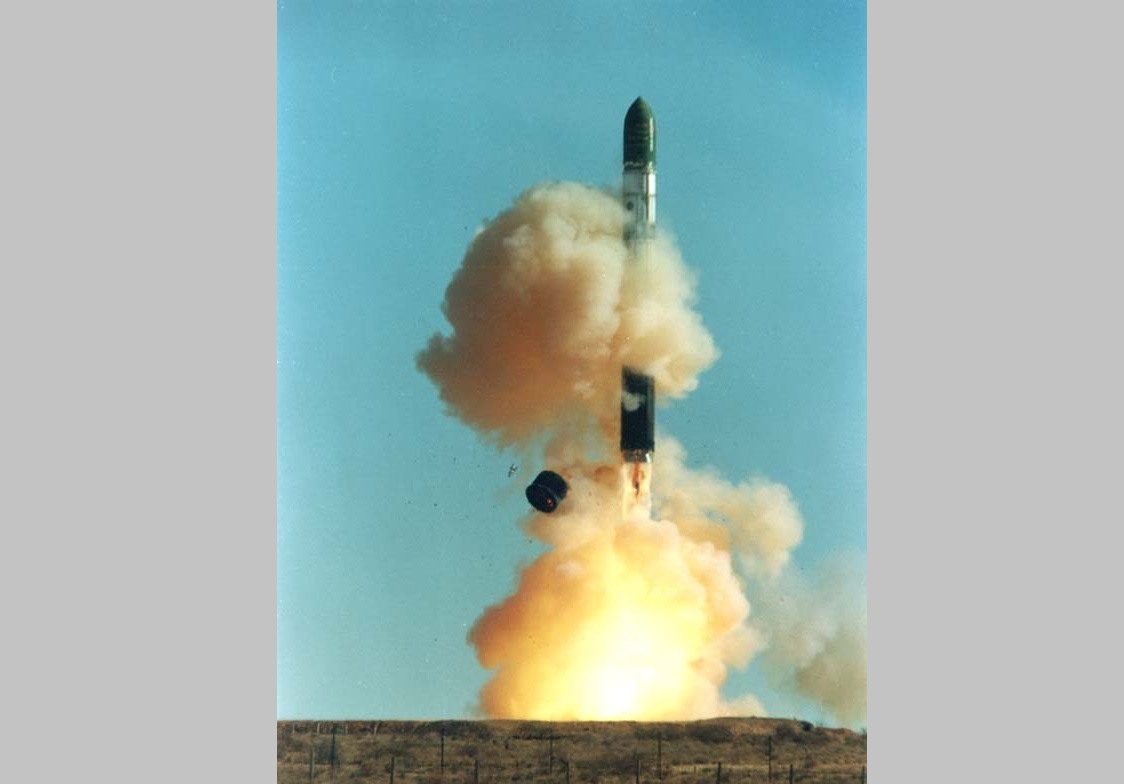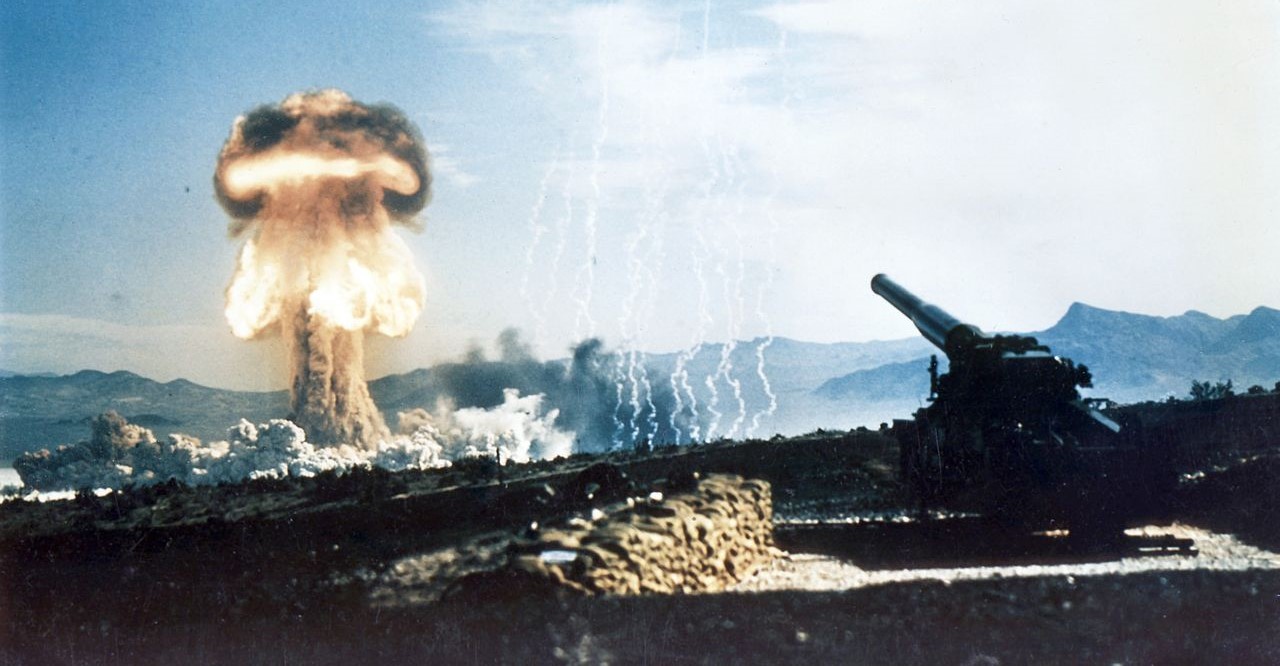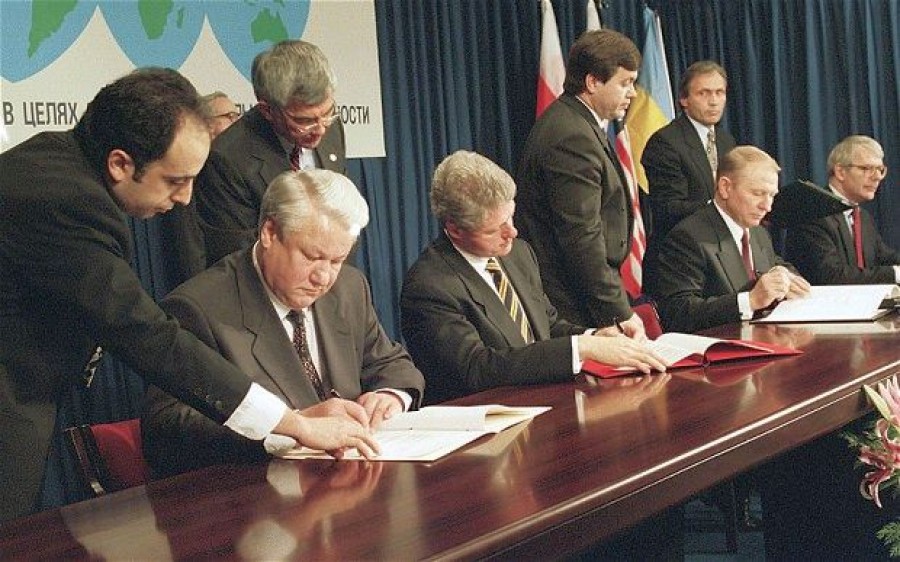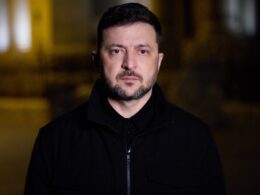Despite Russian military actions, Ukraine has shown itself unprepared for total war, hoping against hope that the West will come to its rescue. But ever more open Russian aggression and ever greater recognition in Ukraine that the West isn’t going to may soon force Ukrainians to consider what they have to do on their own to avoid total defeat.
At present, Vladimir Pastukhov, a UK-based Russian historian, says,
Moscow believes that this situation will continue more or less forever, but, the historian says, “the Kremlin is playing with fire. The present weakness of Ukraine is conditional. At its basis is the paralysis of the political will of the nation and not the absence of real resources for resistance.”
Specifically, he says, “the unreadiness to fight must not be confused with the inability to do so.” Ukraine has options.
That situation ended only in November 1994 when Ukraine ratified the non-proliferation accord and sent these weapons to Russia.
“The idea of Ukraine’s exit from the non-proliferation treaty is not new,” the historian says. Former Ukrainian Leonid Kuchma who signed it proposed doing so in 2015. The reason for his position and the justification for considering this possibility is that Ukraine’s decision to hand over the weapons to the Russian Federation was the Budapest Memorandum.

Under the terms of that agreement, Russia, the US and the UK agreed to be guarantors of Ukraine’s borders as they existed in 1994 and to defend Ukraine against economic blackmail. Under its terms, Boris Yeltsin’s Russia “exchanged its historic interest in Crimea for several thousand Ukrainian nuclear warheads.” And the UK and the US became guarantors.
None of the three powers has behaved as that memorandum requires. Russia has seized Crimea, invaded the Donbas and used economic pressure to try to break Ukraine. Meanwhile, the US and the UK have failed to take any serious steps to force Russia to live up to its commitments.

“Purely theoretically and despite its unenviable situation,” Pastukhov continues, “Ukraine has sufficient scientific and industrial potential for creating nuclear weapons and the means of delivering them, although this, of course, would require from it an enormous commitment of effort.”
“On the territory of the country are the necessary supplies of uranium, there are reactors which permit processing it into plutonium, and there are enterprises capable of producing inter-continental rockets and heavy jets, although to deliver something from Kyiv to Moscow, no inter-continental rocket is needed,” the historian points out.
Once they do, he says, “the situation could change in a significant way – and not at all in the direction Moscow assumes.”
“But for this, three conditions must be met,” Pastukhov says.
- First, “the nation must experience the unbearable pain and shame of a catastrophic defeat,” the kind Moscow seems to want to inflict.
- Second, Ukrainians must “stop waiting for help from abroad.” That isn’t likely to come.
- And third, there must appear in Ukraine “a leader who is not going to compromise.”
Russian actions like those in the Kerch Straits in the last few days “are pushing Ukraine precisely toward that ‘policy of despair,’ the consequences of which are very difficult to predict. The absence of punishment for the aggressor may turn out to be an illusory dream,” the historian continues.
By its actions, he concludes, Moscow may thus create a Ukraine it not only cannot defeat but cannot influence or control.
Although Pastukhov does not address the following aspect of the situation in this essay, it is obvious: If the West wants to avoid a nuclear Ukraine, it must take action to effectively defend Ukraine. If the West doesn’t, it will not only have failed to fulfill its obligations under the Budapest memorandum; it will have played a role in creating something it doesn’t want either.
Further Reading:
- Budapest memorandum: non-proliferation diplomacy twenty years later
- Non-fulfillment of Budapest Memorandum showed the absurdity of disarmament, Turchinov says
- Moscow refuses to discuss Budapest Memorandum
- Statement by the Russian Ministry of Foreign Affairs regarding accusations of Russia’s violation of its obligations under the Budapest Memorandum of 5 December 1994
- Five reasons why supporting Ukraine is in the USA’s interests
- Was Ukraine’s nuclear disarmament a blunder?
- Russian aggression against Ukraine and international law: 25 key theses





